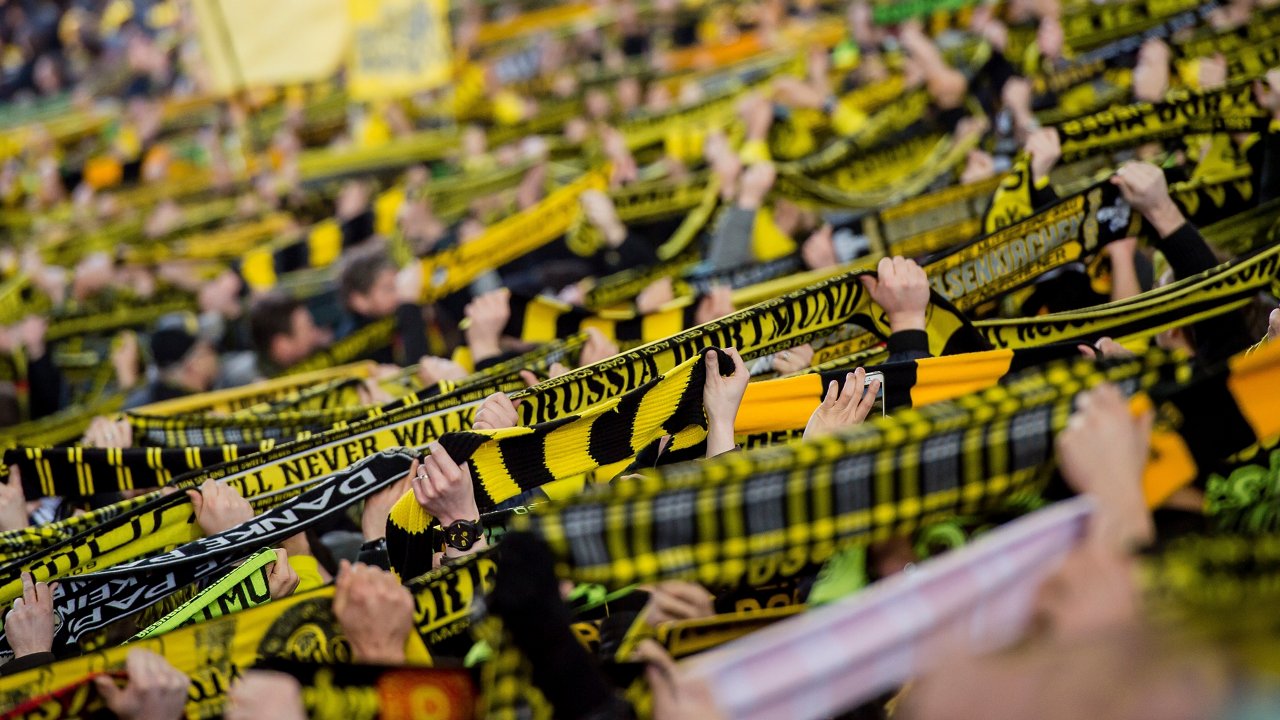1919 – The first Home
The second decade was marked by sporting setbacks and economic problems. Under the leadership of the new president, Heinrich Schwaben, the foundation for initial successes was laid with the expansion of the "Weiße Wiese" into the "Borussia-Sportplatz."
At the beginning of the 1919/20 season, A-league club Borussia Dortmund was only second division. A district league had been created, which BVB reached in 1926. After missing promotion in 1919/20 only in a playoff against SV Dortmund 08, the following years were erratic. Sometimes, despite finishing in first place, they failed due to the regulations, or success was generally lacking.
In 1923, Franz Jacobi stepped down from the chairmanship for brewery director Heinrich Schwaben, who, like Jacobi, occupies a glorious place in the club's history. Schwaben had excellent contacts in the business world, which were necessary to drive forward the stadium expansion. Because football was booming and attracting the masses. The club news reported on the celebrations:
Yesterday, the municipal "Weiße Wiese" on Wambeler Straße received a new name: "Borussia-Sportplatz." Over years of voluntary work, but also through the use of 50,000 Reichsmarks, the club members transformed the previously municipal sports ground into a jewel for 18,000 visitors. This self-initiative is unique in Germany so far. BVB spokesperson and honorary president Franz Jacobi once again hit the nail on the head when he stated: "August 10, 1924, will always be a day of joyful remembrance for BVB."
The promotion to the Ruhr district league in 1926 was literally bought dearly. The players held out their hands but contributed little. Survival in the league was lost in a playoff against SV Langendreer (1:3 a.e.t.). Schwaben saved the heavily indebted club by paying the necessary 13,000 Reichsmarks out of his own pocket.
With relegation came a new sporting direction. They relied on their own youth again. In 1927, a certain August Lenz joined the youth team. Meanwhile, the men had slipped deep, ranking only sixth in Dortmund.
Anecdotes from the Decade
'Weiße Wiese' Expanded
Yesterday, the municipal "Weiße Wiese" on Wambeler Straße received a new name: "Borussia-Sportplatz." Over years of voluntary work, but also through the use of 50,000 Reichsmarks, the club members transformed the previously municipal sports ground into a jewel for 18,000 visitors. This self-initiative is unique in Germany so far. BVB spokesperson and honorary president Franz Jacobi once again hit the nail on the head when he stated: "August 10, 1924, will always be a day of joyful remembrance for BVB. Many sports enthusiasts came to witness the inauguration of the pitch.
Among them were Dr. Ruben from the city and district chairman Zwiehoff. BVB President Dr. Schwaben handed over "our" Borussia-Sportplatz to its purpose. Many of us, including our patron, the construction entrepreneur Ignatz Peters, had tears in our eyes. Just last Wednesday, a section of the new pitch fence, 60 meters long, simply collapsed during the hurricane-like rains of the past few days. We have eliminated this fiasco in round-the-clock work. I am proud of my Borussians!"
Borussia Dortmund Before District Court
In a delicate matter, the BVB chairman, August Busse, visited the Dortmund District Court yesterday. Together with brewery director and former president Heinz Schwaben, he had to provide information about the club's current financial situation. The club was heavily indebted due to financial operations in recent years; bankruptcy loomed. The background: After the expansion of the "Borussia-Sportplatz" in 1924, the "Schwaben board" aimed for sporting top-flight status. They mortgaged insurance policies for 12,000 Reichsmarks and used them to assemble a new team throughout Dortmund, which then ascended to the desired Ruhr district league in 1926.
This constituted a serious violation of DFB regulations. If this had become known, expulsion from the association would have been imminent. Worse yet: The hastily assembled team was not a cohesive unit. They played terribly, driving away all spectators from the "Borussia-Sportplatz"; relegation quickly followed. And with it, a financial debacle. The borrowed 12,000 Reichsmarks could not be repaid according to the agreement. The executive board attempted to outsmart the situation through the 1927 board elections - and were caught. The District Court ordered a repeat election for January 7, 1928. The financial situation became public knowledge in autumn 1928. Schwaben and his associates resigned from their positions but remained in office on an interim basis until May 1929. And the honorable Heinz Schwaben personally saved BVB: He paid the 12,000 Reichsmarks out of his own pocket; the bankruptcy was averted.

